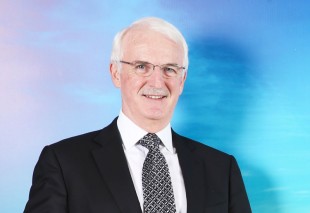

Interview: Gerald Lawless on Burj Al Arab at 15

Jumeirah Group president & CEO Gerald Lawless looks back on the opening of the hotel that put the company and Dubai on the global stage and continues to do so
How important has Burj Al Arab been to the development of Jumeirah Group?
It has been a real cornerstone of the development of Jumeirah and the awareness of the Jumeirah brand over the last 15 years. We are very pleased that Burj Al Arab continues to win awards internationally as the most luxurious hotel in the world.
It is important for Jumeirah to be able to portray itself as being the owner and operator of the Burj Al Arab as this helps greatly in promoting the brand to customers around the world, not only from the point of view of enticing them to stay in Jumeirah hotels, but also in demonstrating to potential investors and owners in different countries that we have the necessary credentials.
Did the opening of Burj Al Arab make an impact on a global scale?
Definitely, and there is a very high awareness of the Burj Al Arab worldwide. We are particularly pleased that Burj Al Arab has become very much the symbol of Dubai and we like to think of it as the Eiffel Tower of Dubai, or the Sydney Opera House of Dubai. That is very beneficial for us as a brand.
In the early years of Jumeirah Group, how important was it that the execution of the hotel was done perfectly?
It is always important to open any hotel as perfectly as you can, and certainly we were extremely honoured that His Highness Sheikh Mohammed bin Rashid Al Maktoum had the inspiration and the vision to develop the whole resort, including the Burj Al Arab, Wild Wadi Waterpark, and starting off with the Jumeirah Beach Hotel. All of these buildings were very much ground-breaking at the time. In my opinion, Burj Al Arab and Jumeirah Beach hotel really did help to establish tourism in Dubai and fit the ambitions His Highness had for the evolution and development of Dubai as a tourism destination.
Interview continues on next page...
Looking back to the opening in December 1999, what were your emotions at the time?
Being involved in the opening of something like the Burj Al Arab, which was getting attention from all around the world, we always had mixed emotions. There was a great feeling of pride to begin with. There was also a certain amount of trepidation associated with the challenge of having to make it work commercially. History has proven His Highness right: it was not just something that was great as an investment for overall tourism in Dubai, it has been a commercial success as well. Over the years the Burj Al Arab team has built the hotel’s success to where it is today.
Was there more pressure on this opening than any other in your career?
Without a doubt, yes, if you think of all the investment that went into developing the resort at the time and the ground-breaking product that Burj Al Arab was. I think it was the first time that such a large all-suite hotel was built. Also, for the hotel to be built on a man-made island in the Gulf was quite something as well.
How has the hotel performed commercially over the years?
It has exceeded expectations, but then so has the development of Dubai. Burj Al Arab has certainly proven itself to be a very astute commercial investment, as well as a symbolic investment for the city of Dubai.
What is the future for the the Burj Al Arab?
We have what we call ‘zero tolerance’ in relation to any maintenance defects. Even though the décor is the same as it was at the very beginning, just about every fabric has been changed over the years. The interior design was done by Khuan Chew, of KCA International, and was very much talked about. Our approach is to keep the décor as close as possible to the original, but always maintained to the highest possible standards.